
fiftyone-brain
Open source AI/ML capabilities for the FiftyOne ecosystem
Stars: 138
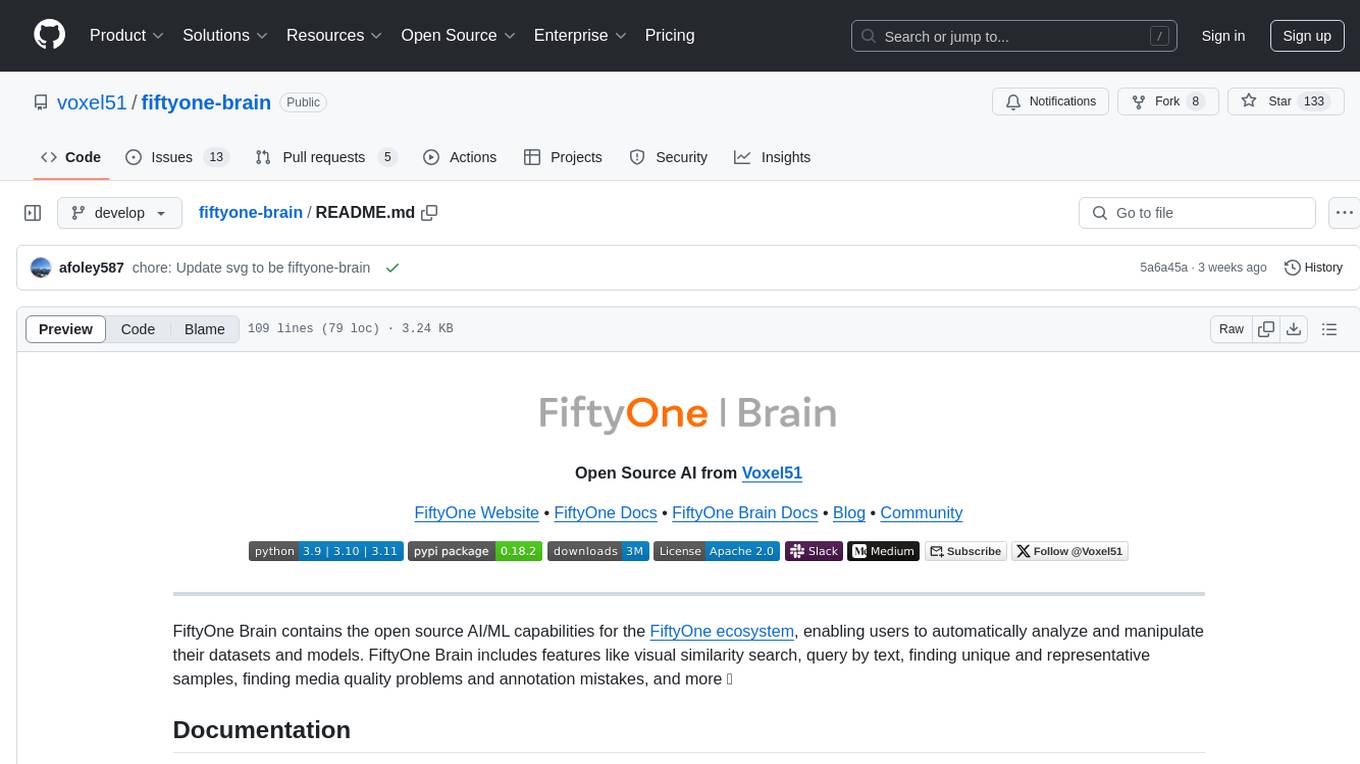
FiftyOne Brain contains the open source AI/ML capabilities for the FiftyOne ecosystem, enabling users to automatically analyze and manipulate their datasets and models. Features include visual similarity search, query by text, finding unique and representative samples, finding media quality problems and annotation mistakes, and more.
README:
Open Source AI from Voxel51
FiftyOne Website • FiftyOne Docs • FiftyOne Brain Docs • Blog • Community
FiftyOne Brain contains the open source AI/ML capabilities for the FiftyOne ecosystem, enabling users to automatically analyze and manipulate their datasets and models. FiftyOne Brain includes features like visual similarity search, query by text, finding unique and representative samples, finding media quality problems and annotation mistakes, and more 🚀
Public documentation for the FiftyOne Brain is available here.
The FiftyOne Brain is distributed via the fiftyone-brain package, and a
suitable version is automatically included with every fiftyone install:
pip install fiftyone
pip show fiftyone-brainIf you wish to do a source install of the latest FiftyOne Brain version, simply clone this repository:
git clone https://github.com/voxel51/fiftyone-brain
cd fiftyone-brainand run the install script:
# Mac or Linux
bash install.bash
# Windows
.\install.batIf you are a developer contributing to this repository, you should perform a
developer installation using the -d flag of the install script:
# Mac or Linux
bash install.bash -d
# Windows
.\install.bat -dCheck out the contribution guide to get started.
pip uninstall fiftyone-brain-
fiftyone/brain/definition of thefiftyone.brainnamespace -
requirements/Python requirements for the project -
tests/tests for the various components of the Brain
If you use the FiftyOne Brain in your research, please cite the project:
@article{moore2020fiftyone,
title={FiftyOne},
author={Moore, B. E. and Corso, J. J.},
journal={GitHub. Note: https://github.com/voxel51/fiftyone-brain},
year={2020}
}For Tasks:
Click tags to check more tools for each tasksFor Jobs:
Alternative AI tools for fiftyone-brain
Similar Open Source Tools

fiftyone-brain
FiftyOne Brain contains the open source AI/ML capabilities for the FiftyOne ecosystem, enabling users to automatically analyze and manipulate their datasets and models. Features include visual similarity search, query by text, finding unique and representative samples, finding media quality problems and annotation mistakes, and more.
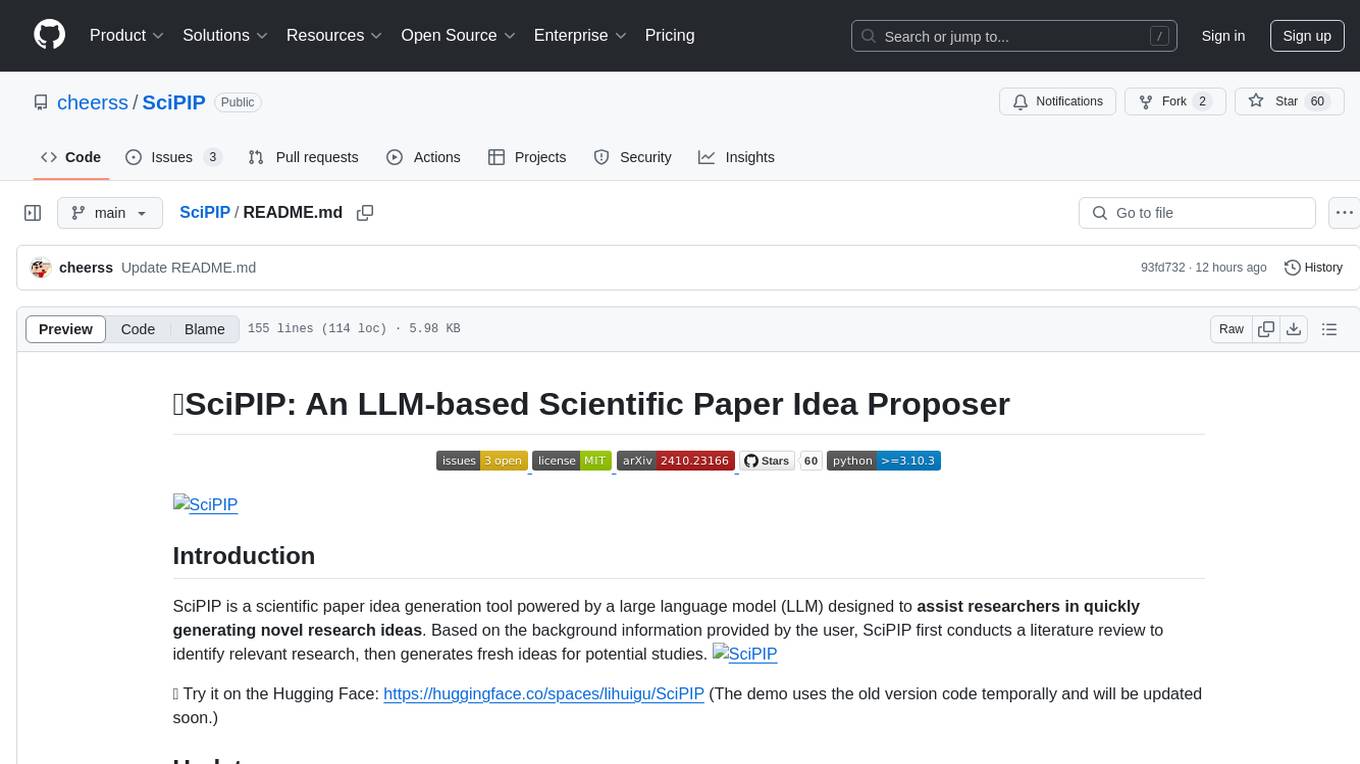
SciPIP
SciPIP is a scientific paper idea generation tool powered by a large language model (LLM) designed to assist researchers in quickly generating novel research ideas. It conducts a literature review based on user-provided background information and generates fresh ideas for potential studies. The tool is designed to help researchers in various fields by providing a GUI environment for idea generation, supporting NLP, multimodal, and CV fields, and allowing users to interact with the tool through a web app or terminal. SciPIP uses Neo4j as its database and provides functionalities for generating new ideas, fetching papers, and constructing the database.
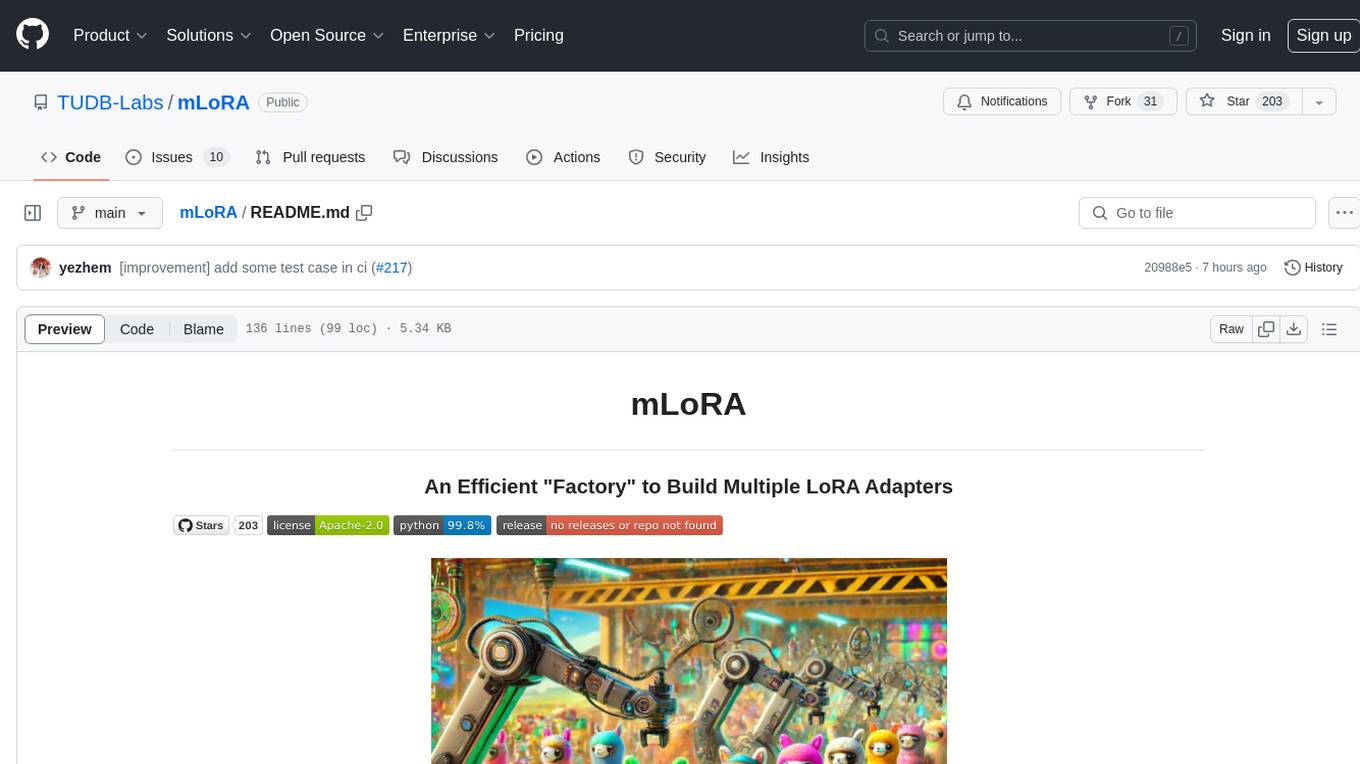
mLoRA
mLoRA (Multi-LoRA Fine-Tune) is an open-source framework for efficient fine-tuning of multiple Large Language Models (LLMs) using LoRA and its variants. It allows concurrent fine-tuning of multiple LoRA adapters with a shared base model, efficient pipeline parallelism algorithm, support for various LoRA variant algorithms, and reinforcement learning preference alignment algorithms. mLoRA helps save computational and memory resources when training multiple adapters simultaneously, achieving high performance on consumer hardware.
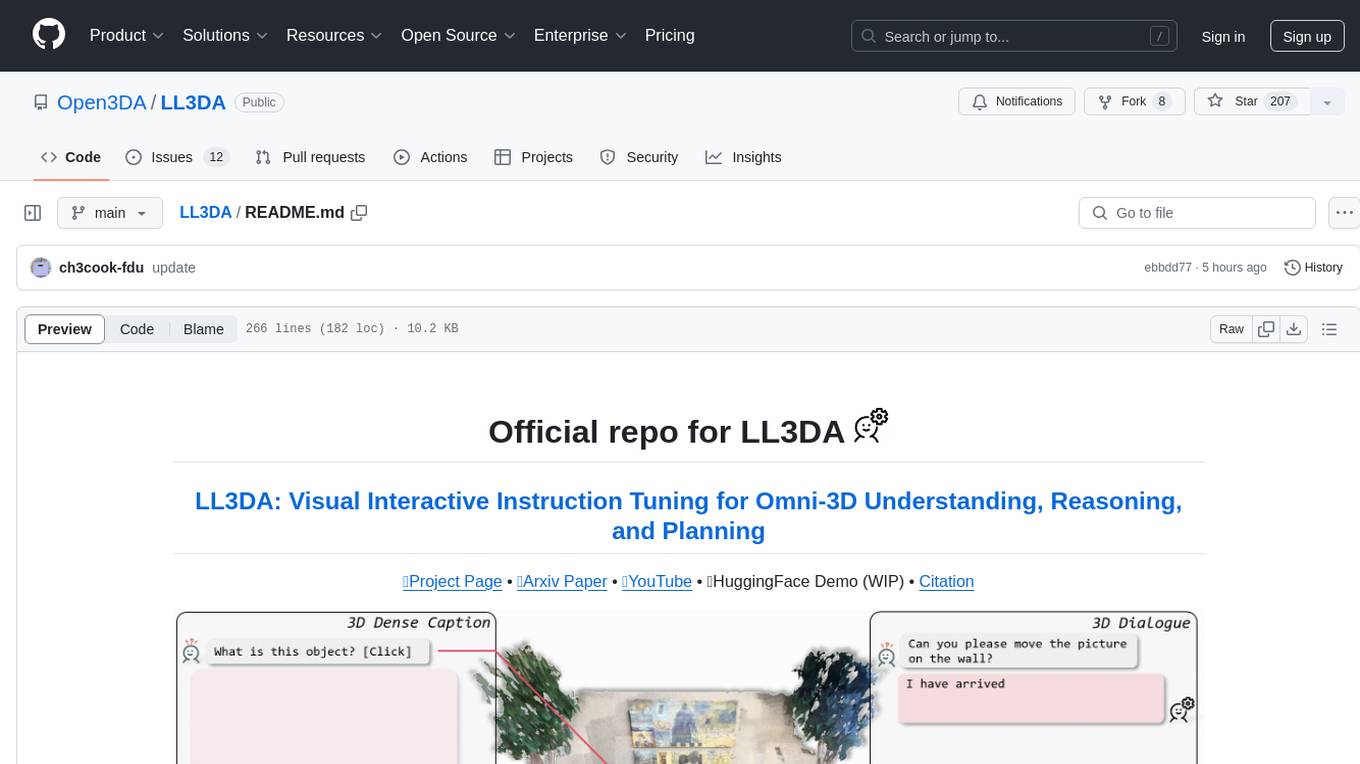
LL3DA
LL3DA is a Large Language 3D Assistant that responds to both visual and textual interactions within complex 3D environments. It aims to help Large Multimodal Models (LMM) comprehend, reason, and plan in diverse 3D scenes by directly taking point cloud input and responding to textual instructions and visual prompts. LL3DA achieves remarkable results in 3D Dense Captioning and 3D Question Answering, surpassing various 3D vision-language models. The code is fully released, allowing users to train customized models and work with pre-trained weights. The tool supports training with different LLM backends and provides scripts for tuning and evaluating models on various tasks.
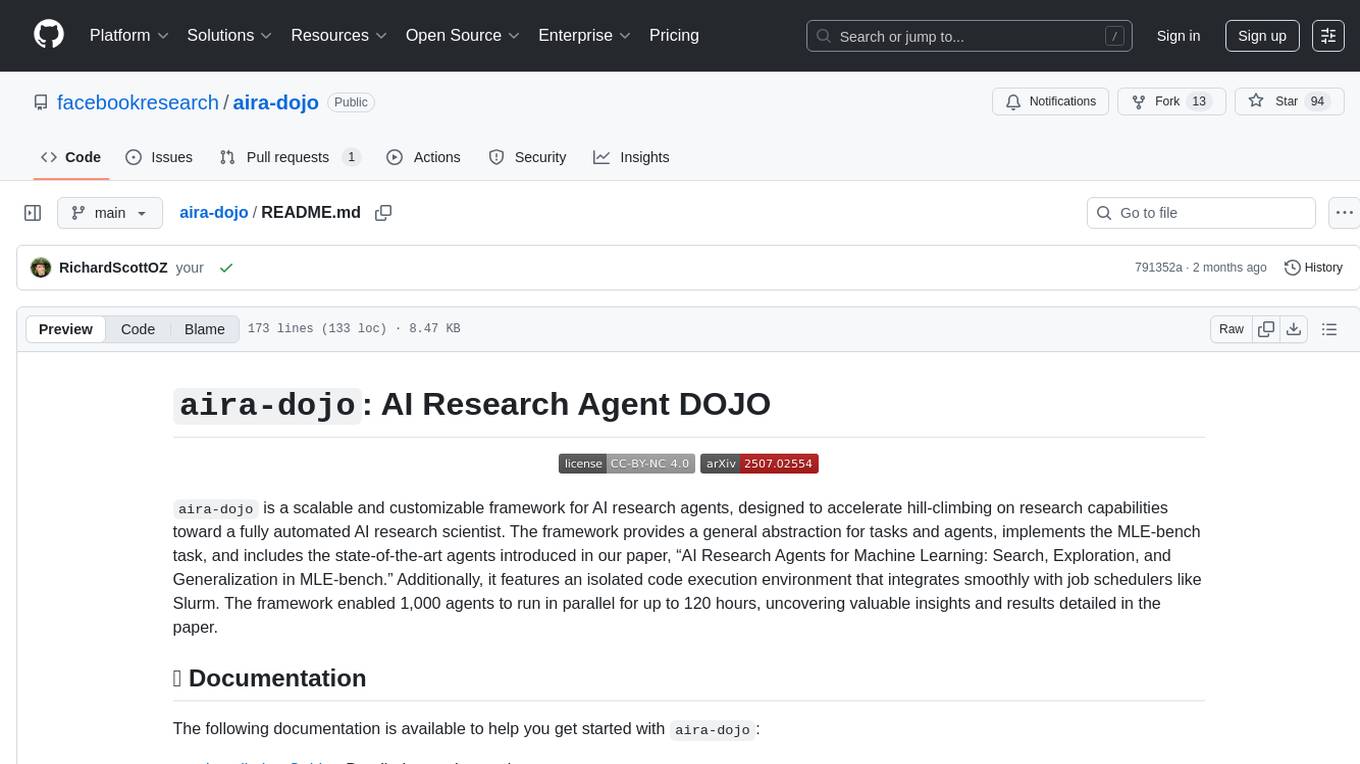
aira-dojo
aira-dojo is a scalable and customizable framework for AI research agents, designed to accelerate hill-climbing on research capabilities toward a fully automated AI research scientist. The framework provides a general abstraction for tasks and agents, implements the MLE-bench task, and includes state-of-the-art agents. It features an isolated code execution environment that integrates smoothly with job schedulers like Slurm, enabling large-scale experiments and rapid iteration across a portfolio of tasks and solvers.
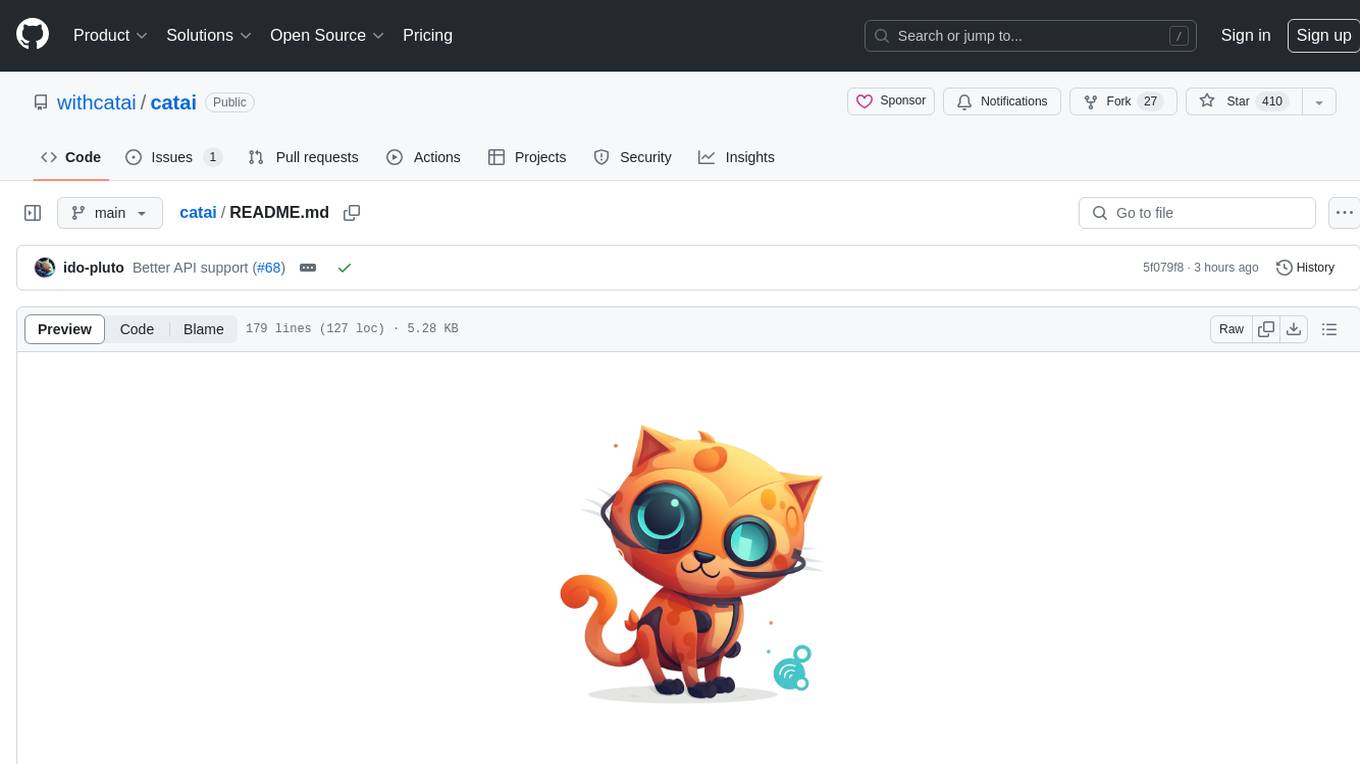
catai
CatAI is a tool that allows users to run GGUF models on their computer with a chat UI. It serves as a local AI assistant inspired by Node-Llama-Cpp and Llama.cpp. The tool provides features such as auto-detecting programming language, showing original messages by clicking on user icons, real-time text streaming, and fast model downloads. Users can interact with the tool through a CLI that supports commands for installing, listing, setting, serving, updating, and removing models. CatAI is cross-platform and supports Windows, Linux, and Mac. It utilizes node-llama-cpp and offers a simple API for asking model questions. Additionally, developers can integrate the tool with node-llama-cpp@beta for model management and chatting. The configuration can be edited via the web UI, and contributions to the project are welcome. The tool is licensed under Llama.cpp's license.
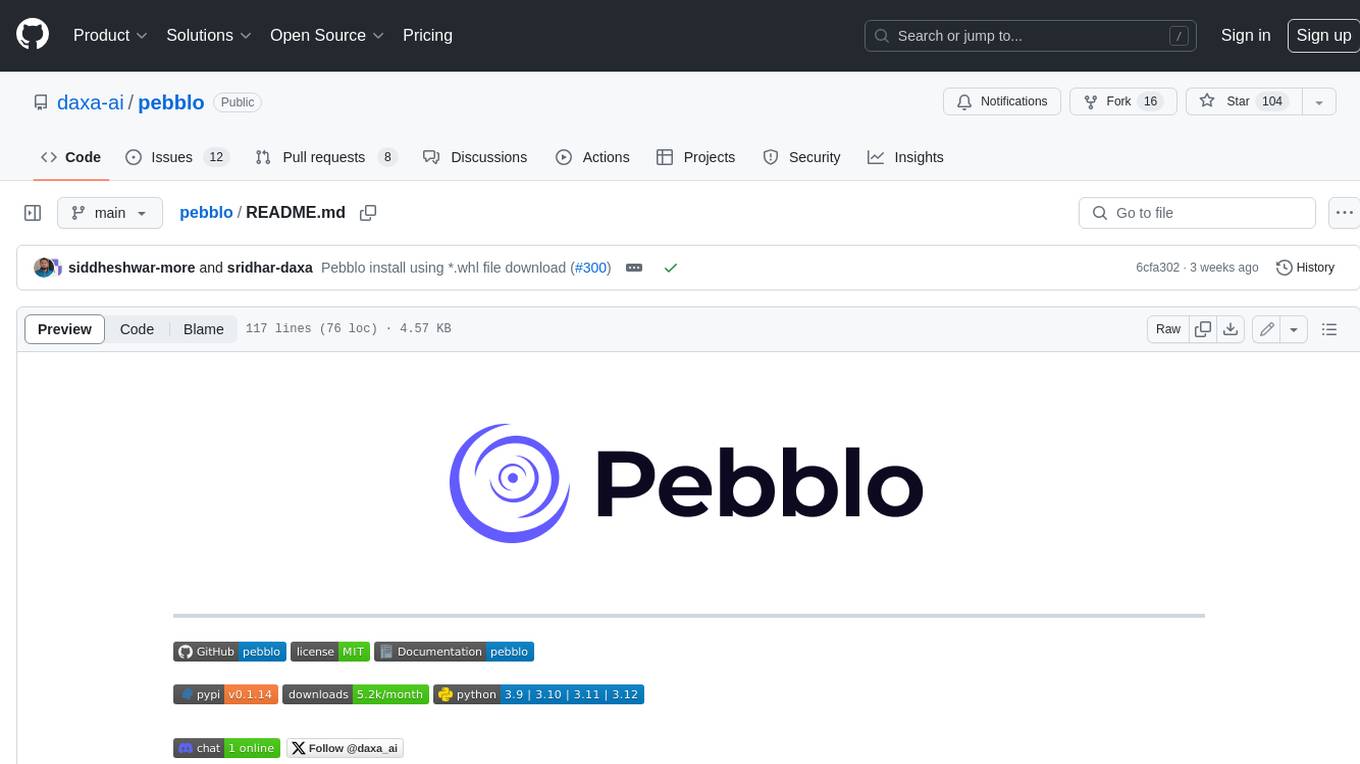
pebblo
Pebblo enables developers to safely load data and promote their Gen AI app to deployment without worrying about the organization’s compliance and security requirements. The project identifies semantic topics and entities found in the loaded data and summarizes them on the UI or a PDF report.
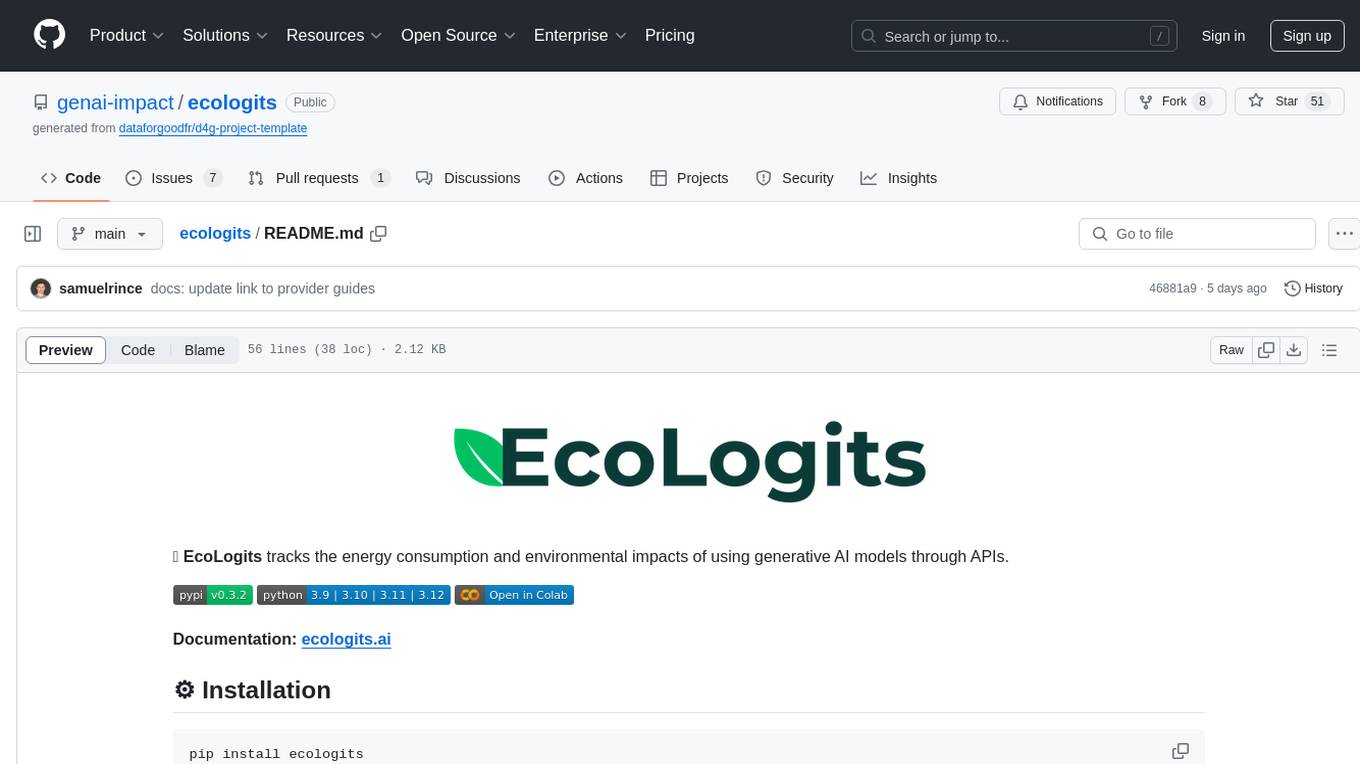
ecologits
EcoLogits tracks energy consumption and environmental impacts of generative AI models through APIs. It provides estimated environmental impacts of the inference, such as energy consumption and GHG emissions. The tool supports integration with various providers like Anthropic, Cohere, Google GenerativeAI, Huggingface Hub, MistralAI, and OpenAI. Users can easily install EcoLogits using pip and access detailed documentation on ecologits.ai. The project welcomes contributions and is licensed under MPL-2.0.
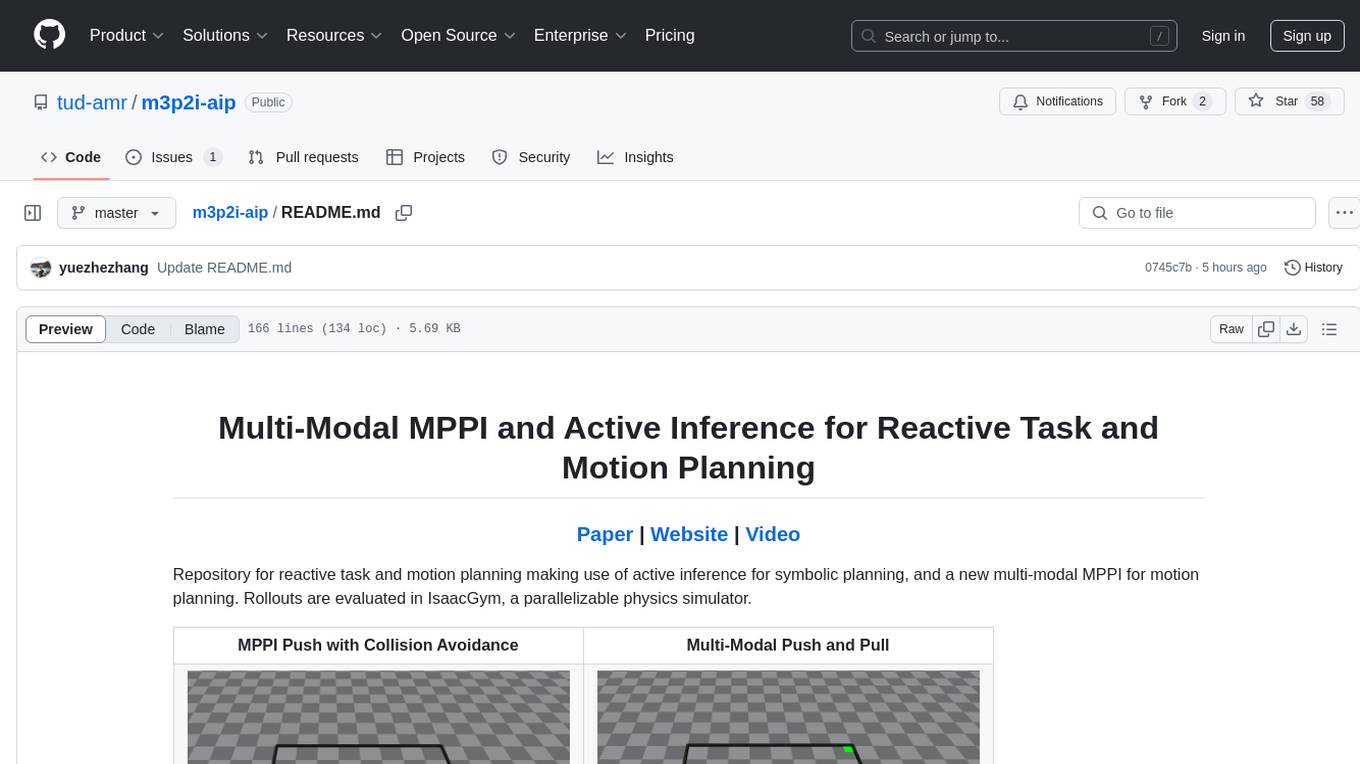
m3p2i-aip
Repository for reactive task and motion planning using active inference for symbolic planning and multi-modal MPPI for motion planning. Rollouts are evaluated in IsaacGym, a parallelizable physics simulator. The tool provides functionalities for push, pull, pick, and multi-modal push-pull tasks with collision avoidance.
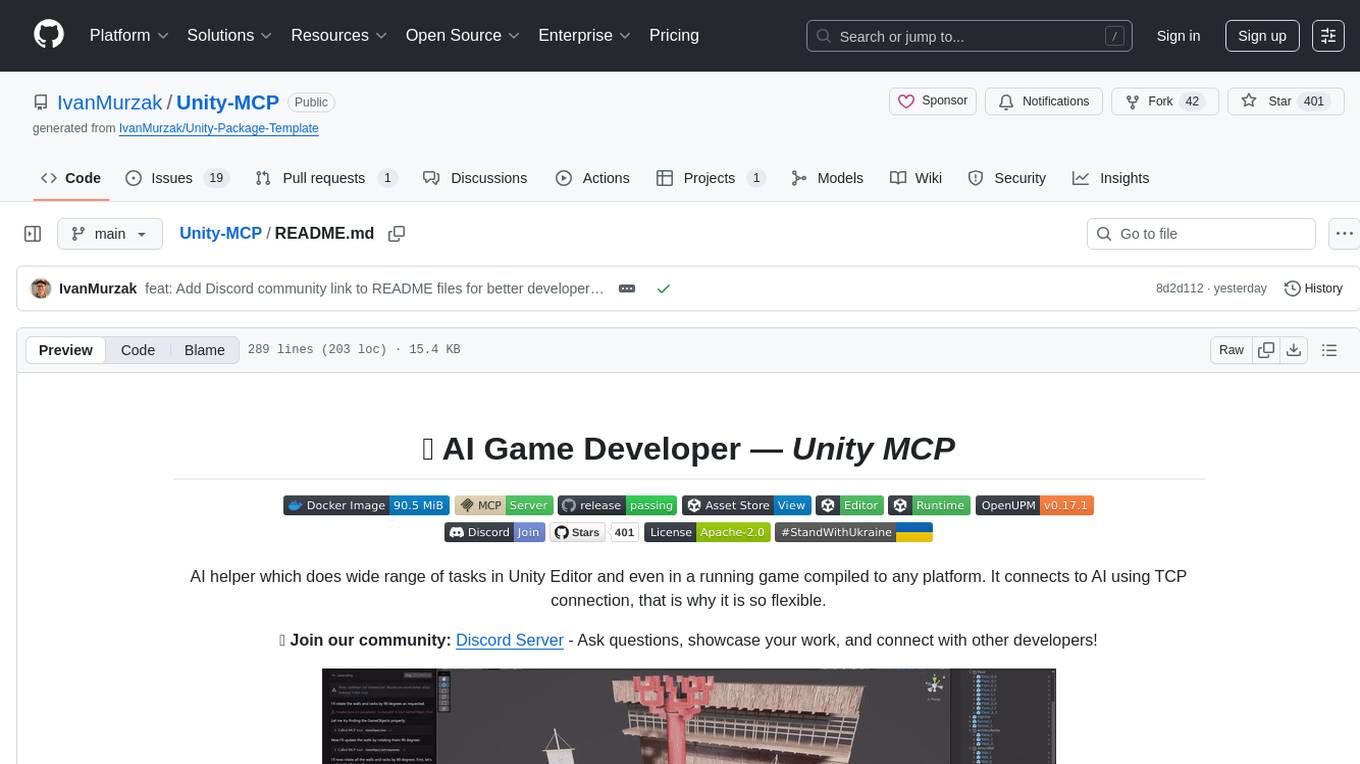
Unity-MCP
Unity-MCP is an AI helper designed for game developers using Unity. It facilitates a wide range of tasks in Unity Editor and running games on any platform by connecting to AI via TCP connection. The tool allows users to chat with AI like with a human, supports local and remote usage, and offers various default AI tools. Users can provide detailed information for classes, fields, properties, and methods using the 'Description' attribute in C# code. Unity-MCP enables instant C# code compilation and execution, provides access to assets and C# scripts, and offers tools for proper issue understanding and project data manipulation. It also allows users to find and call methods in the codebase, work with Unity API, and access human-readable descriptions of code elements.
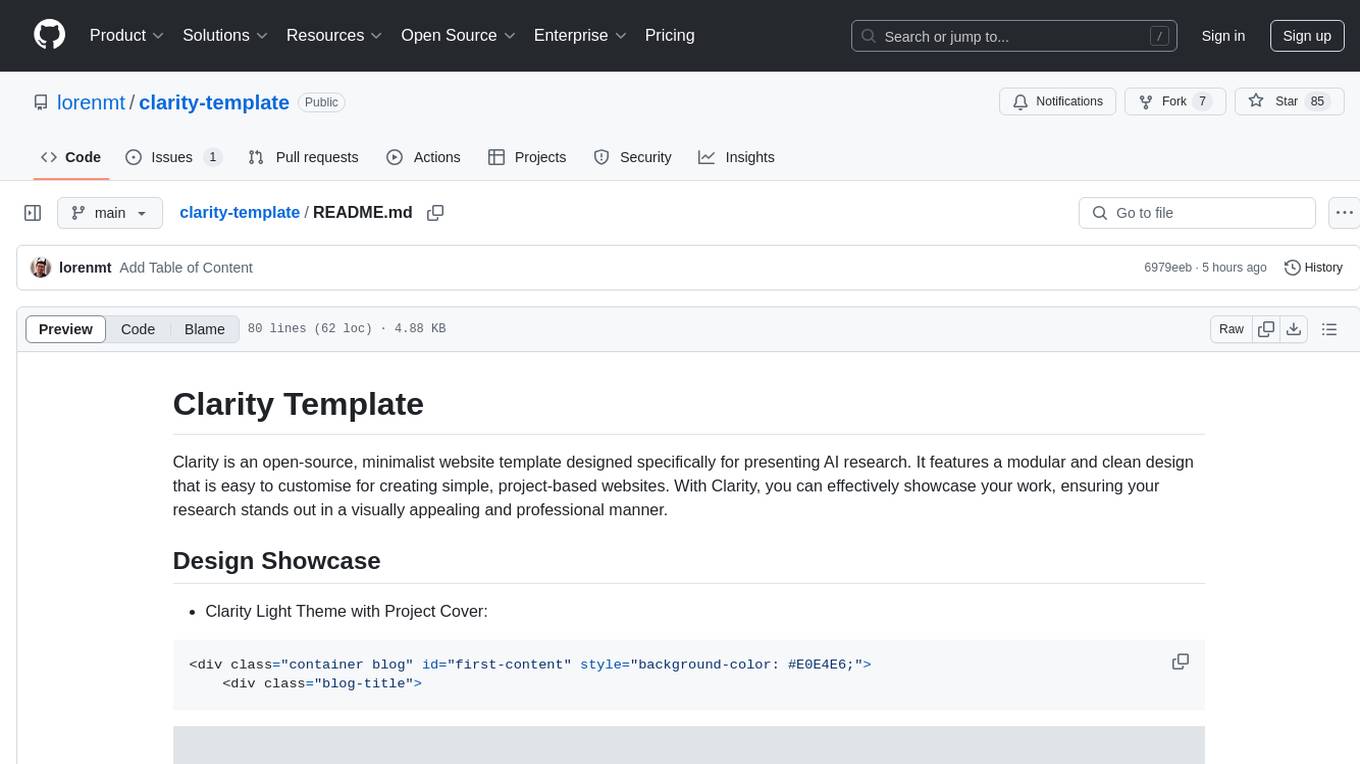
clarity-template
Clarity Template is an open-source, minimalist website template tailored for presenting AI research. It offers a modular and clean design that can be easily customized for creating simple, project-based websites. With Clarity, users can effectively showcase their work in a visually appealing and professional manner. The template includes various design themes and features like navbar design, slideshow display, title page layout, and comparison display. Users can follow the visual guidelines provided in the Clarity blog post or clarity.html file to optimize visual layouts and design. Clarity offers two font options: free fonts (Charter and Poppins) and licensed fonts (Tiempos Text and Athletics) with trial licenses available for non-commercial use. Users can switch between font options by downloading and placing font files in the assets/fonts directory, updating font settings in the stylesheet, and ensuring compatibility across different browsers using a web font converter.
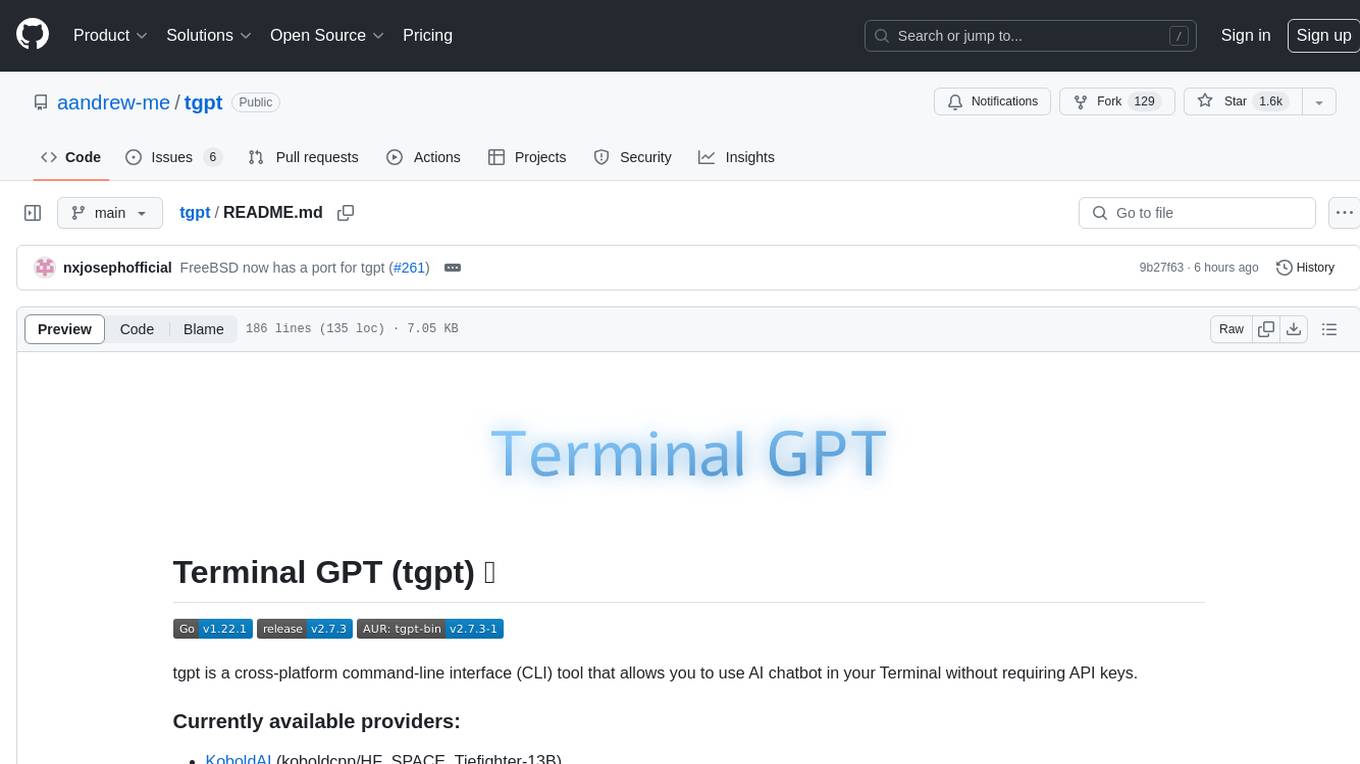
tgpt
tgpt is a cross-platform command-line interface (CLI) tool that allows users to interact with AI chatbots in the Terminal without needing API keys. It supports various AI providers such as KoboldAI, Phind, Llama2, Blackbox AI, and OpenAI. Users can generate text, code, and images using different flags and options. The tool can be installed on GNU/Linux, MacOS, FreeBSD, and Windows systems. It also supports proxy configurations and provides options for updating and uninstalling the tool.
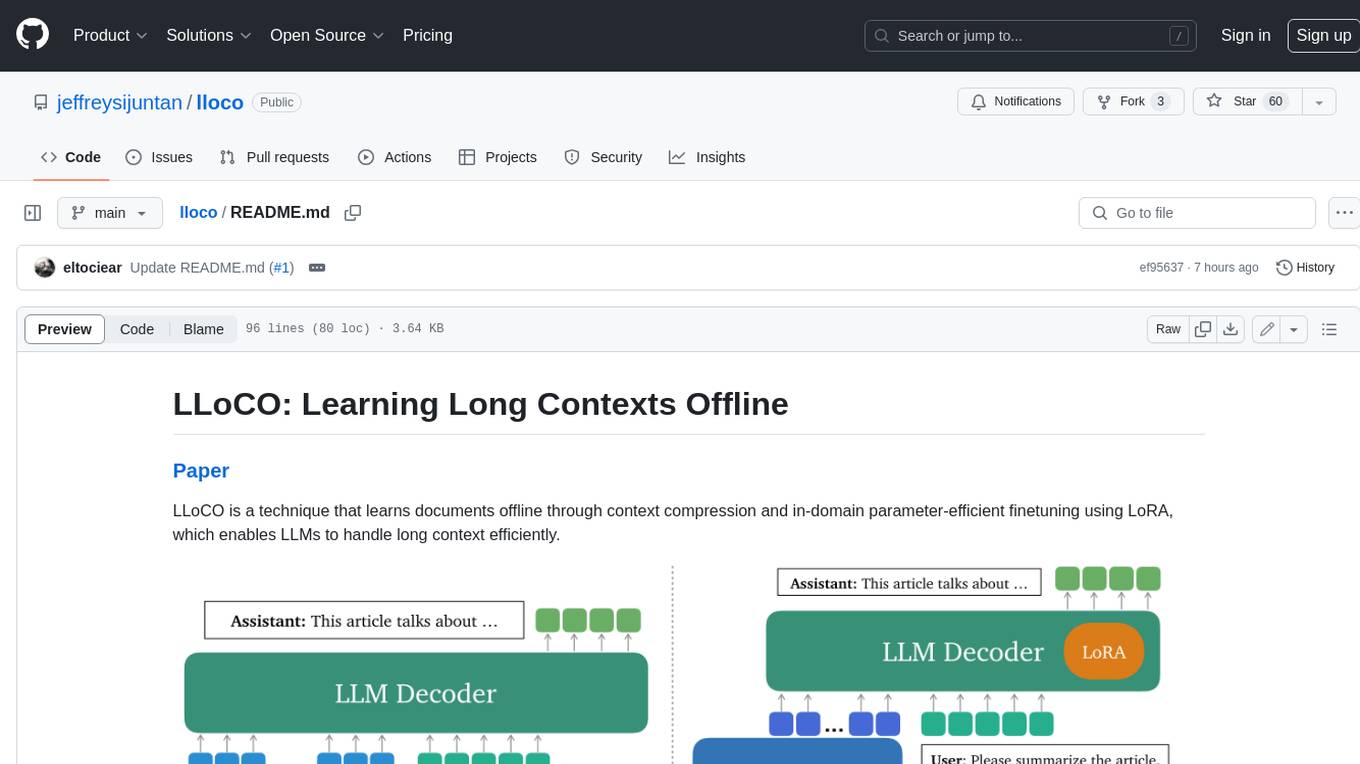
lloco
LLoCO is a technique that learns documents offline through context compression and in-domain parameter-efficient finetuning using LoRA, which enables LLMs to handle long context efficiently.

graphiti
Graphiti is a framework for building and querying temporally-aware knowledge graphs, tailored for AI agents in dynamic environments. It continuously integrates user interactions, structured and unstructured data, and external information into a coherent, queryable graph. The framework supports incremental data updates, efficient retrieval, and precise historical queries without complete graph recomputation, making it suitable for developing interactive, context-aware AI applications.
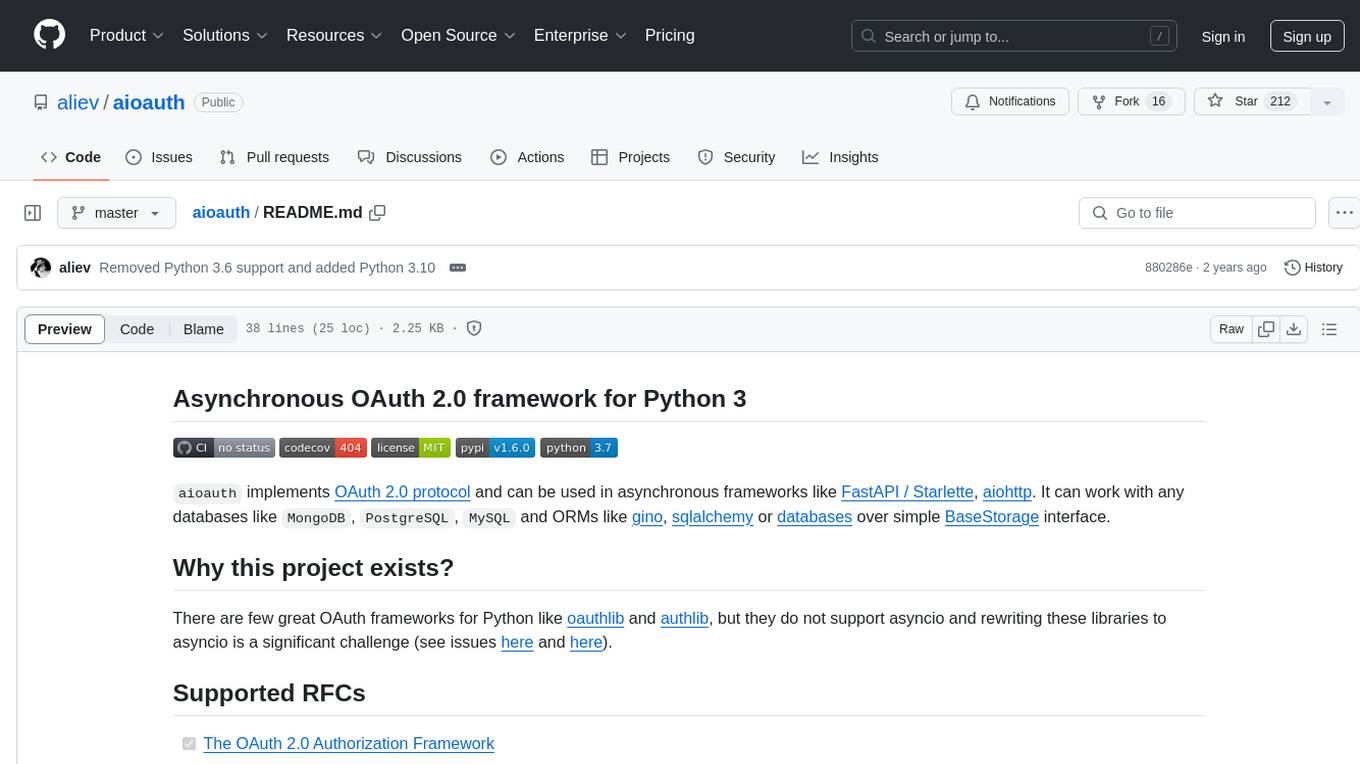
aioauth
Aioauth is an asynchronous OAuth 2.0 framework for Python 3 that implements the OAuth 2.0 protocol and can be used in asynchronous frameworks like FastAPI, Starlette, and aiohttp. It supports various databases such as MongoDB, PostgreSQL, MySQL, and ORMs like gino and sqlalchemy through a simple BaseStorage interface.
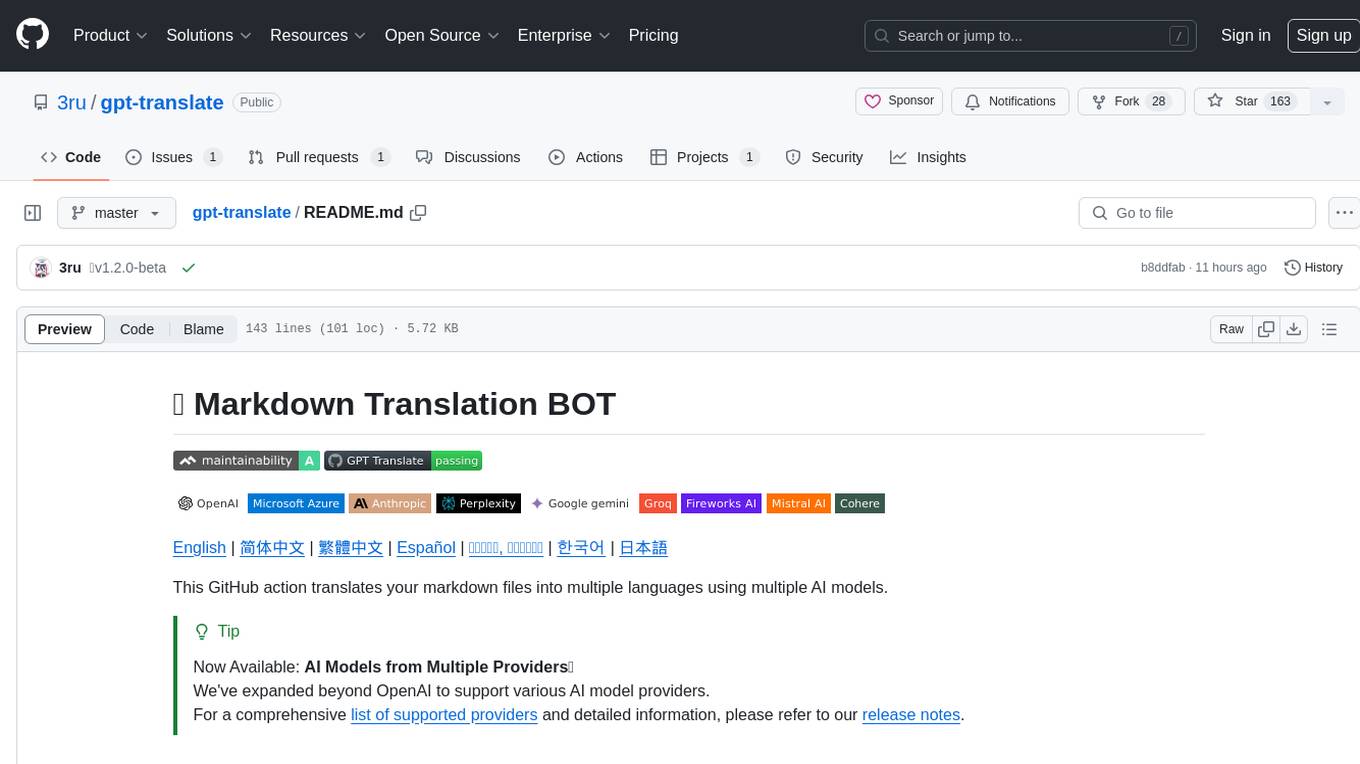
gpt-translate
Markdown Translation BOT is a GitHub action that translates markdown files into multiple languages using various AI models. It supports markdown, markdown-jsx, and json files only. The action can be executed by individuals with write permissions to the repository, preventing API abuse by non-trusted parties. Users can set up the action by providing their API key and configuring the workflow settings. The tool allows users to create comments with specific commands to trigger translations and automatically generate pull requests or add translated files to existing pull requests. It supports multiple file translations and can interpret any language supported by GPT-4 or GPT-3.5.
For similar tasks
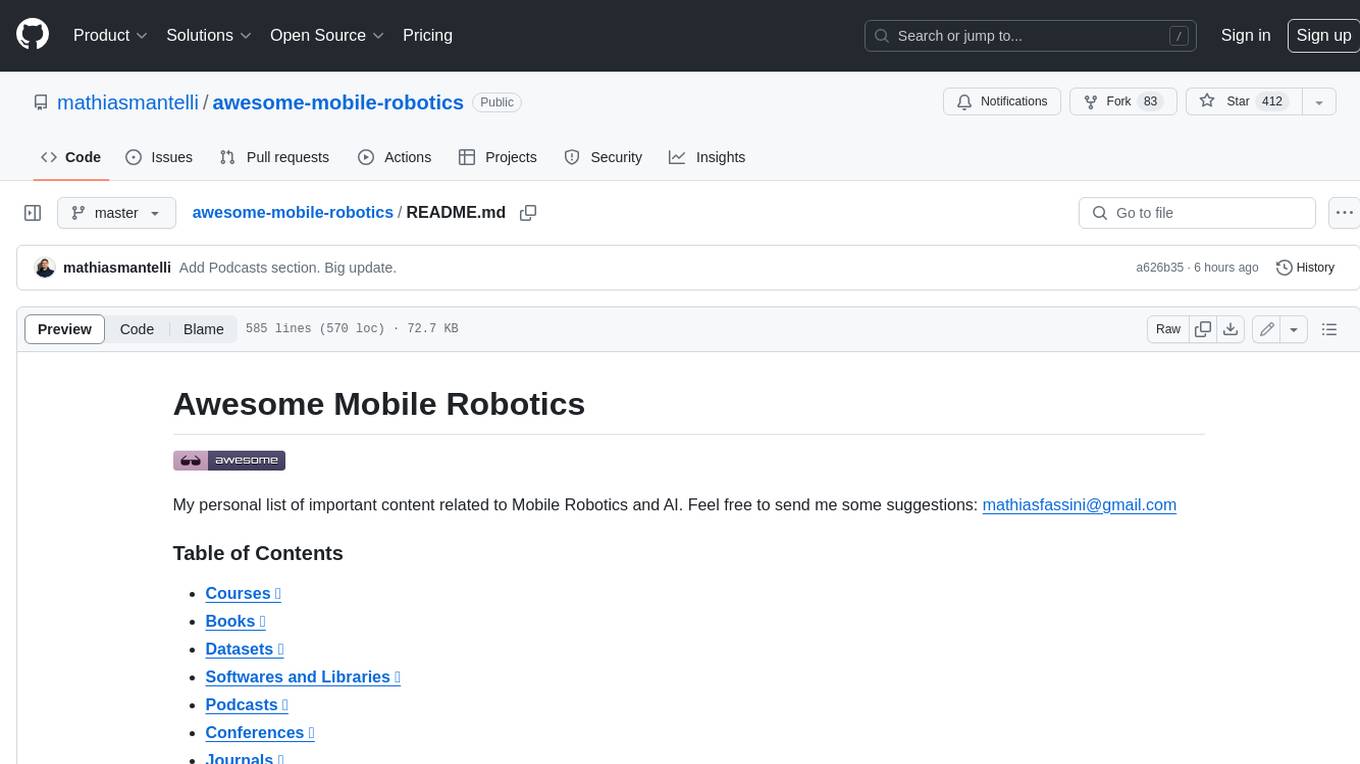
awesome-mobile-robotics
The 'awesome-mobile-robotics' repository is a curated list of important content related to Mobile Robotics and AI. It includes resources such as courses, books, datasets, software and libraries, podcasts, conferences, journals, companies and jobs, laboratories and research groups, and miscellaneous resources. The repository covers a wide range of topics in the field of Mobile Robotics and AI, providing valuable information for enthusiasts, researchers, and professionals in the domain.

fiftyone-brain
FiftyOne Brain contains the open source AI/ML capabilities for the FiftyOne ecosystem, enabling users to automatically analyze and manipulate their datasets and models. Features include visual similarity search, query by text, finding unique and representative samples, finding media quality problems and annotation mistakes, and more.
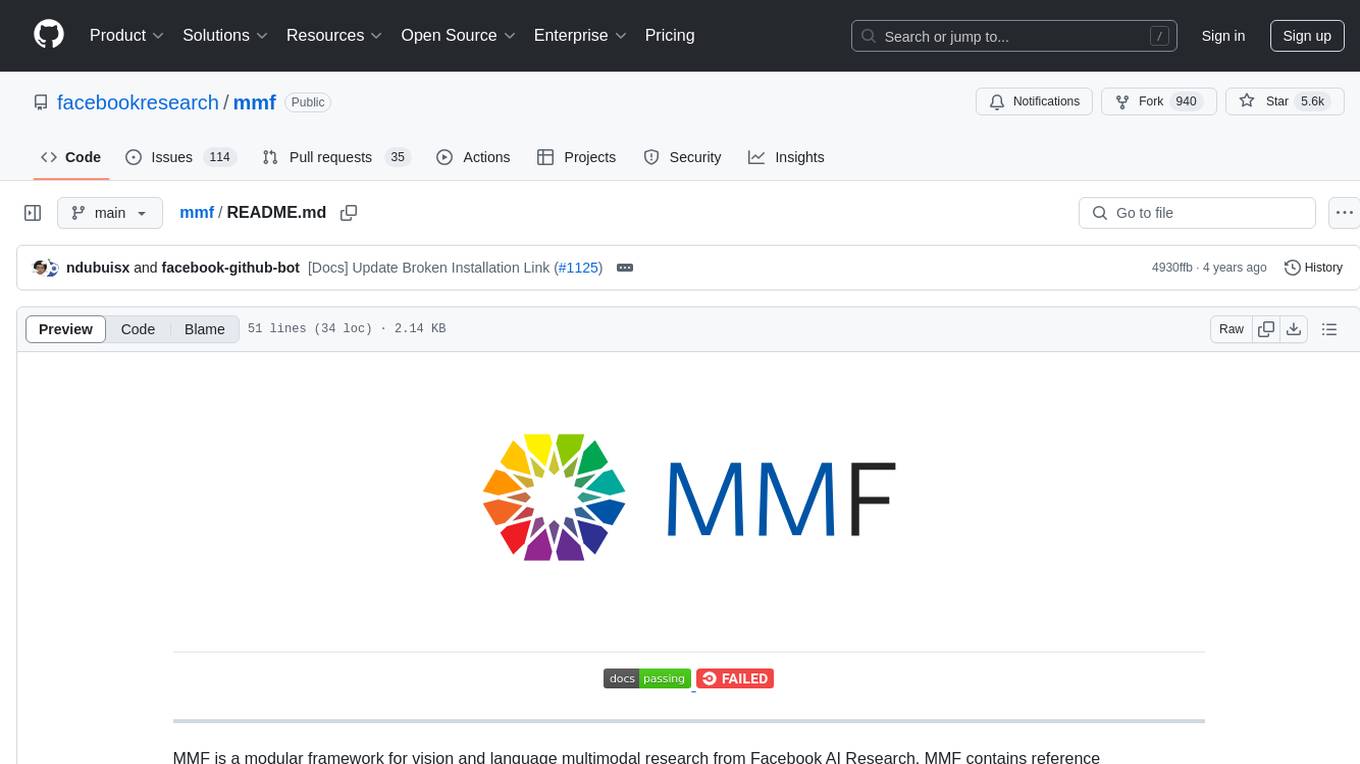
mmf
MMF is a modular framework for vision and language multimodal research from Facebook AI Research. It contains reference implementations of state-of-the-art vision and language models, allowing distributed training. MMF serves as a starter codebase for challenges around vision and language datasets, such as The Hateful Memes, TextVQA, TextCaps, and VQA challenges. It is scalable, fast, and un-opinionated, providing a solid foundation for vision and language multimodal research projects.
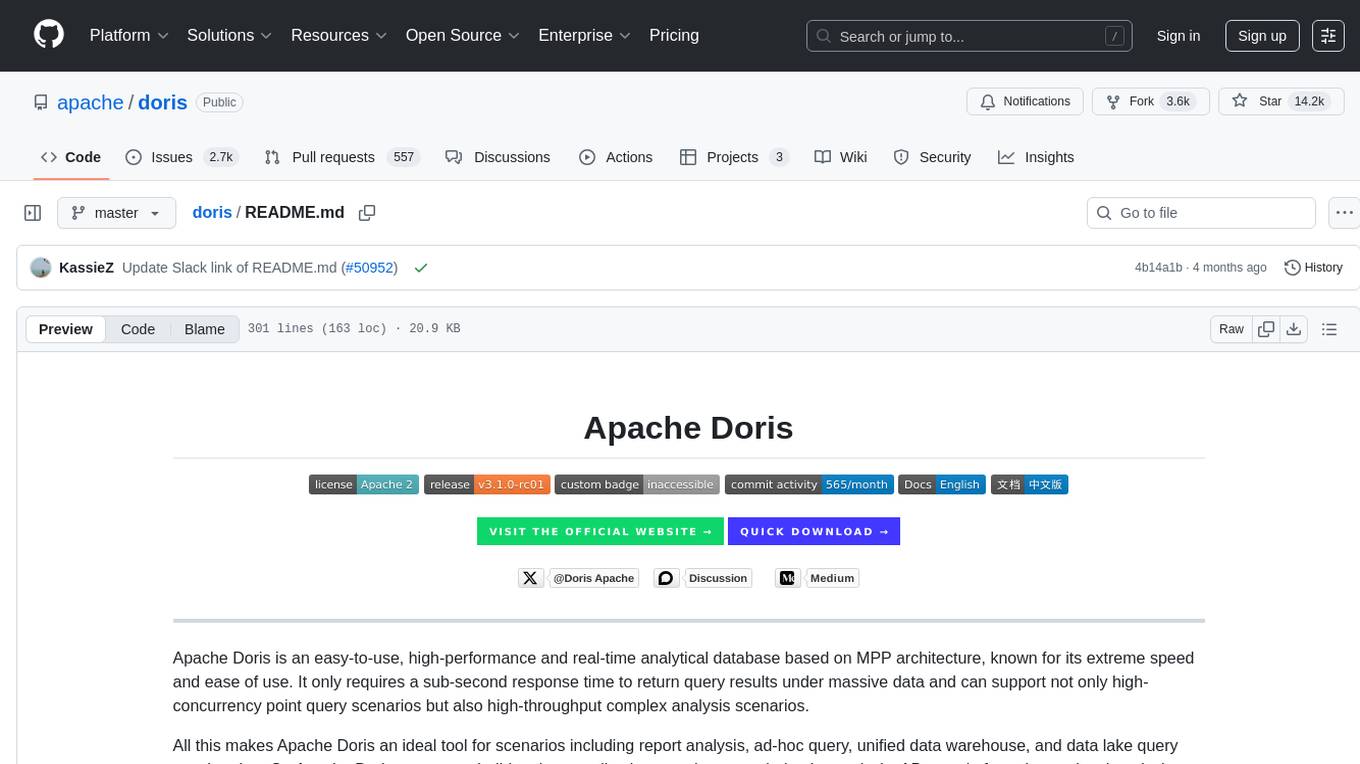
doris
Doris is a lightweight and user-friendly data visualization tool designed for quick and easy exploration of datasets. It provides a simple interface for users to upload their data and generate interactive visualizations without the need for coding. With Doris, users can easily create charts, graphs, and dashboards to analyze and present their data in a visually appealing way. The tool supports various data formats and offers customization options to tailor visualizations to specific needs. Whether you are a data analyst, researcher, or student, Doris simplifies the process of data exploration and presentation.
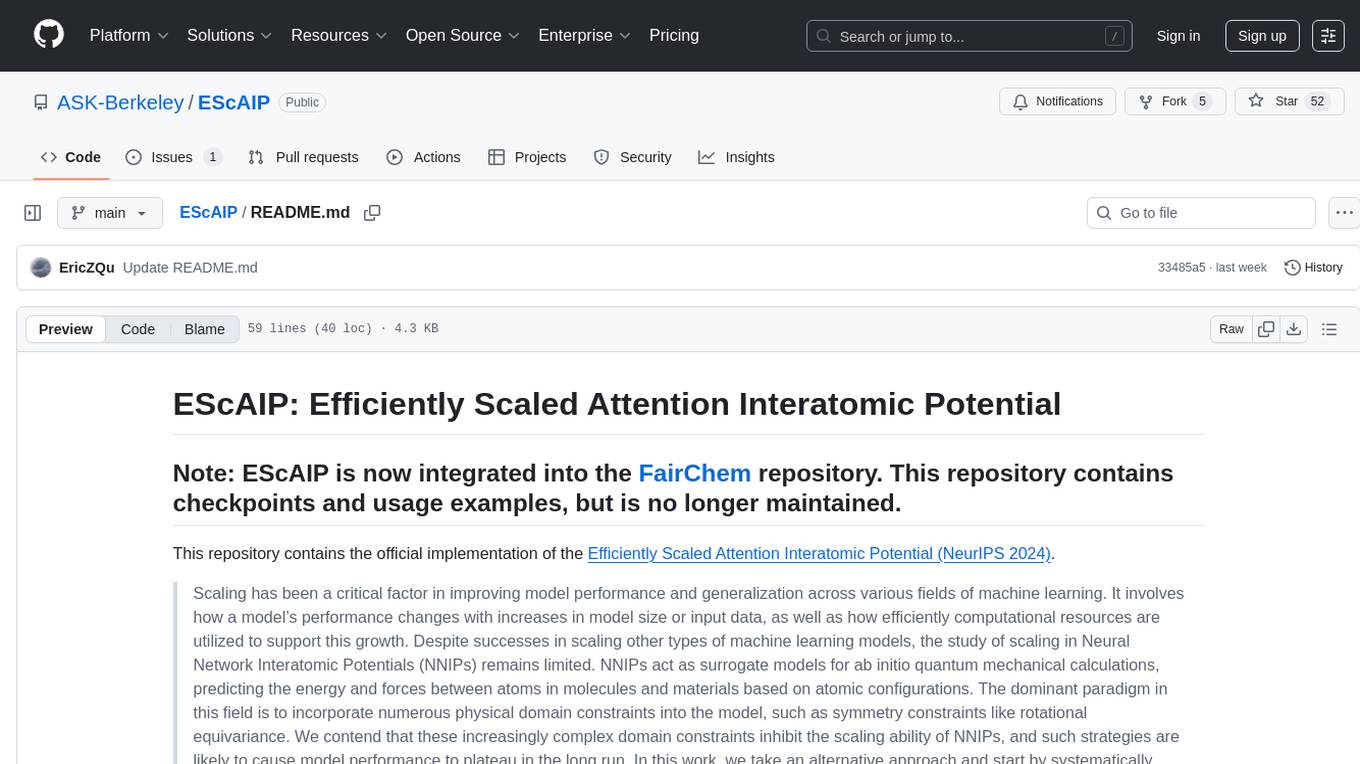
EScAIP
EScAIP is an Efficiently Scaled Attention Interatomic Potential that leverages a novel multi-head self-attention formulation within graph neural networks to predict energy and forces between atoms in molecules and materials. It achieves substantial gains in efficiency, at least 10x speed up in inference time and 5x less memory usage compared to existing models. EScAIP represents a philosophy towards developing general-purpose Neural Network Interatomic Potentials that achieve better expressivity through scaling and continue to scale efficiently with increased computational resources and training data.
For similar jobs

weave
Weave is a toolkit for developing Generative AI applications, built by Weights & Biases. With Weave, you can log and debug language model inputs, outputs, and traces; build rigorous, apples-to-apples evaluations for language model use cases; and organize all the information generated across the LLM workflow, from experimentation to evaluations to production. Weave aims to bring rigor, best-practices, and composability to the inherently experimental process of developing Generative AI software, without introducing cognitive overhead.

LLMStack
LLMStack is a no-code platform for building generative AI agents, workflows, and chatbots. It allows users to connect their own data, internal tools, and GPT-powered models without any coding experience. LLMStack can be deployed to the cloud or on-premise and can be accessed via HTTP API or triggered from Slack or Discord.

VisionCraft
The VisionCraft API is a free API for using over 100 different AI models. From images to sound.

kaito
Kaito is an operator that automates the AI/ML inference model deployment in a Kubernetes cluster. It manages large model files using container images, avoids tuning deployment parameters to fit GPU hardware by providing preset configurations, auto-provisions GPU nodes based on model requirements, and hosts large model images in the public Microsoft Container Registry (MCR) if the license allows. Using Kaito, the workflow of onboarding large AI inference models in Kubernetes is largely simplified.

PyRIT
PyRIT is an open access automation framework designed to empower security professionals and ML engineers to red team foundation models and their applications. It automates AI Red Teaming tasks to allow operators to focus on more complicated and time-consuming tasks and can also identify security harms such as misuse (e.g., malware generation, jailbreaking), and privacy harms (e.g., identity theft). The goal is to allow researchers to have a baseline of how well their model and entire inference pipeline is doing against different harm categories and to be able to compare that baseline to future iterations of their model. This allows them to have empirical data on how well their model is doing today, and detect any degradation of performance based on future improvements.

tabby
Tabby is a self-hosted AI coding assistant, offering an open-source and on-premises alternative to GitHub Copilot. It boasts several key features: * Self-contained, with no need for a DBMS or cloud service. * OpenAPI interface, easy to integrate with existing infrastructure (e.g Cloud IDE). * Supports consumer-grade GPUs.

spear
SPEAR (Simulator for Photorealistic Embodied AI Research) is a powerful tool for training embodied agents. It features 300 unique virtual indoor environments with 2,566 unique rooms and 17,234 unique objects that can be manipulated individually. Each environment is designed by a professional artist and features detailed geometry, photorealistic materials, and a unique floor plan and object layout. SPEAR is implemented as Unreal Engine assets and provides an OpenAI Gym interface for interacting with the environments via Python.

Magick
Magick is a groundbreaking visual AIDE (Artificial Intelligence Development Environment) for no-code data pipelines and multimodal agents. Magick can connect to other services and comes with nodes and templates well-suited for intelligent agents, chatbots, complex reasoning systems and realistic characters.





